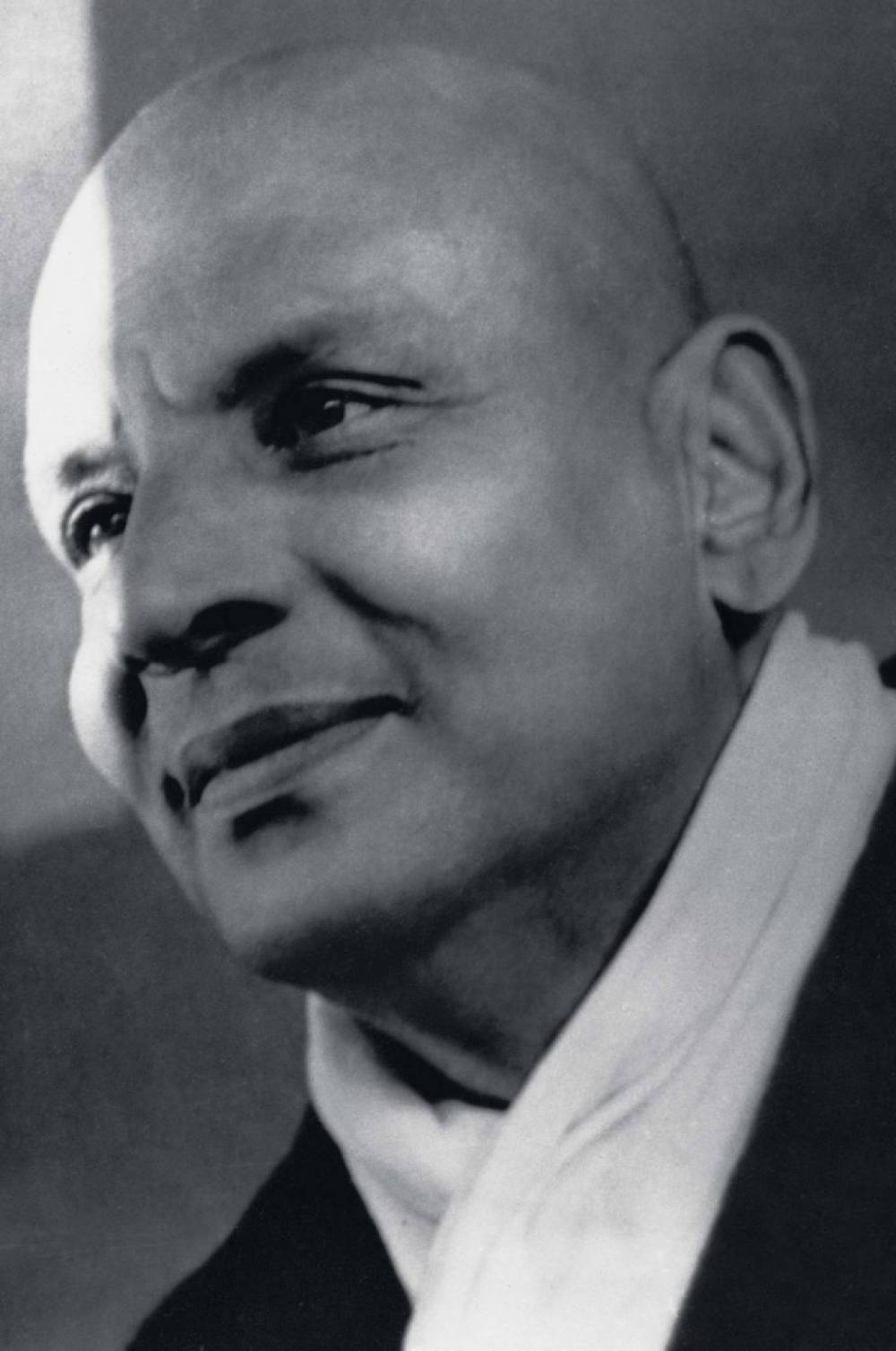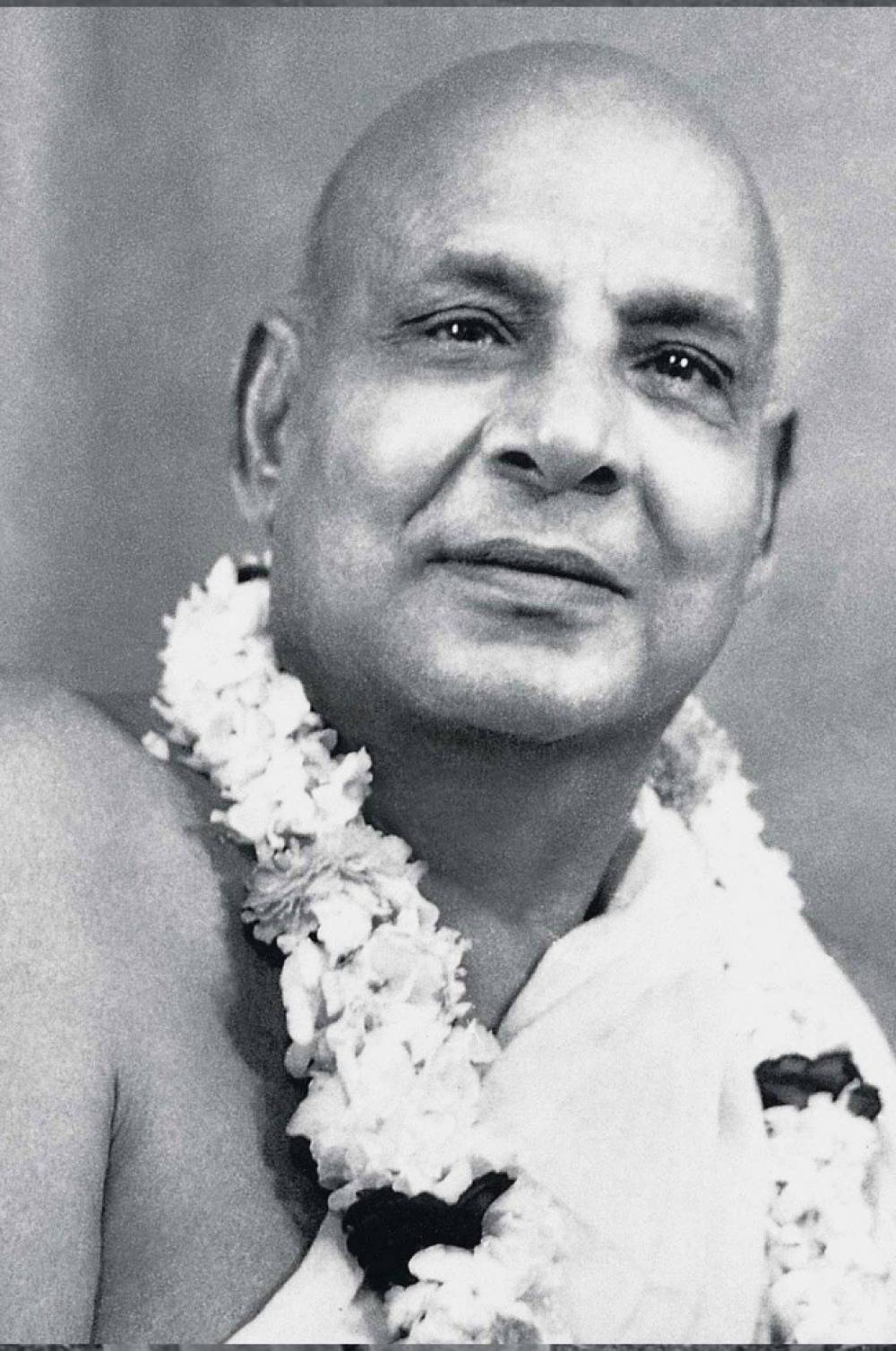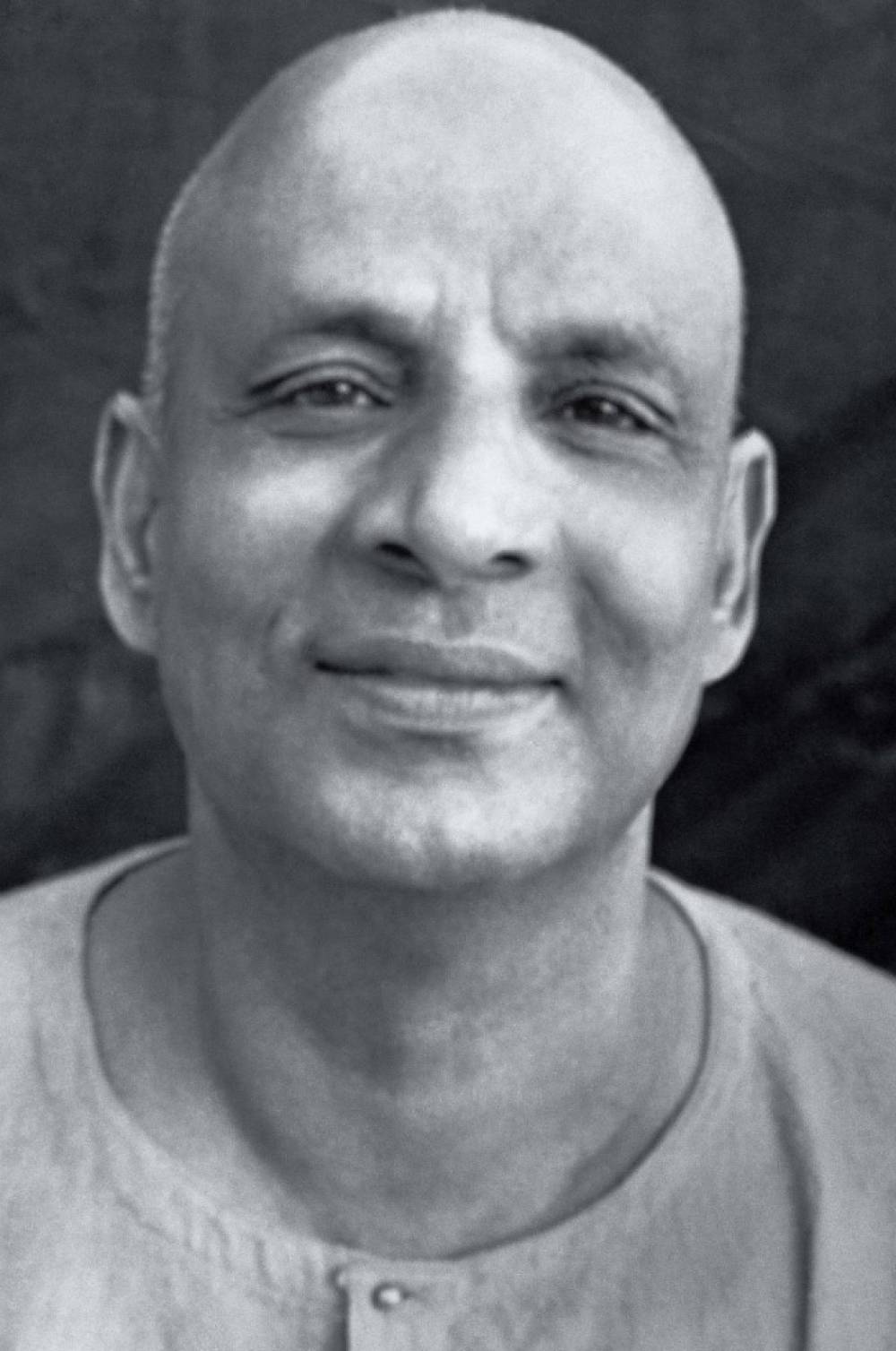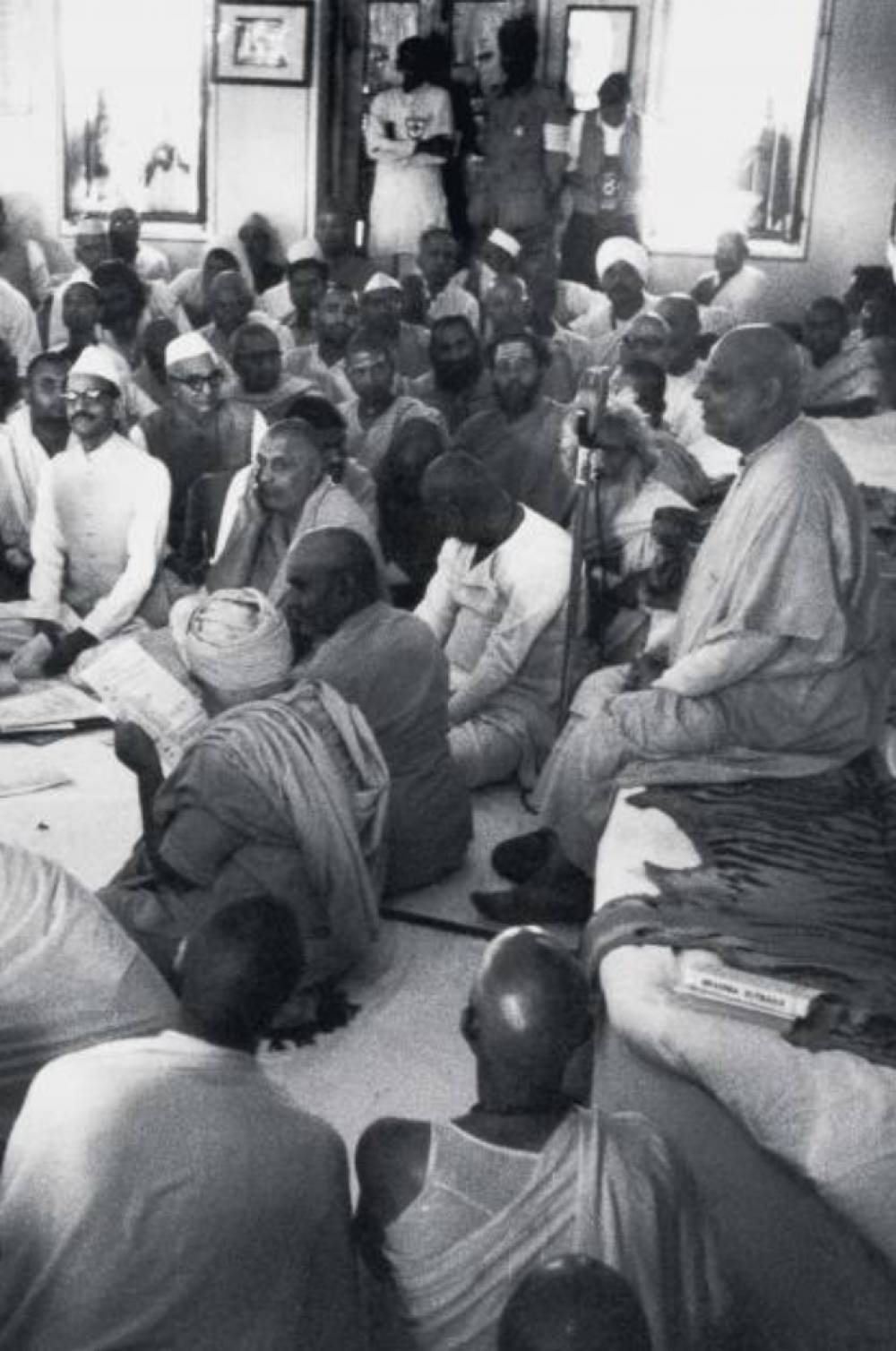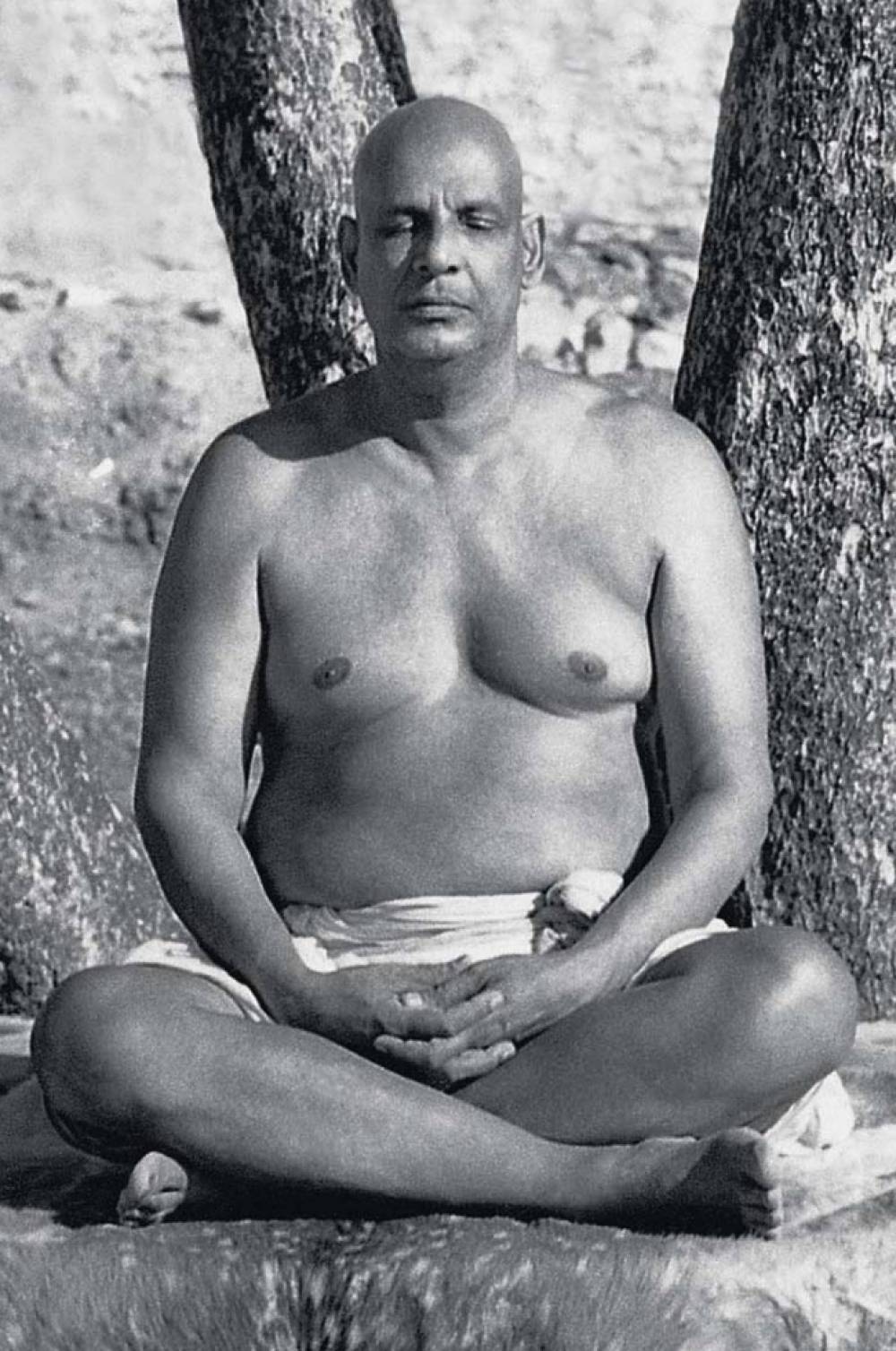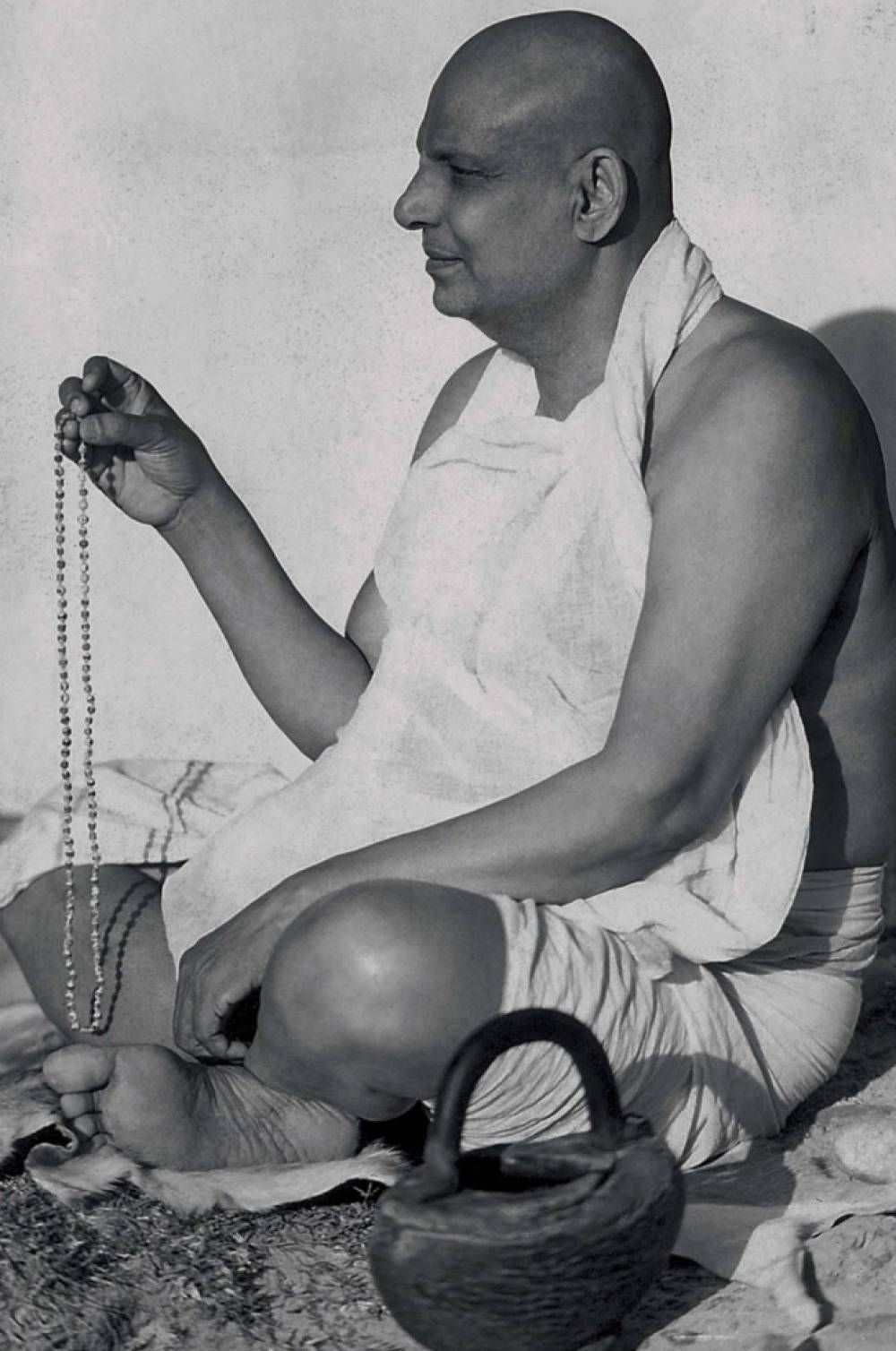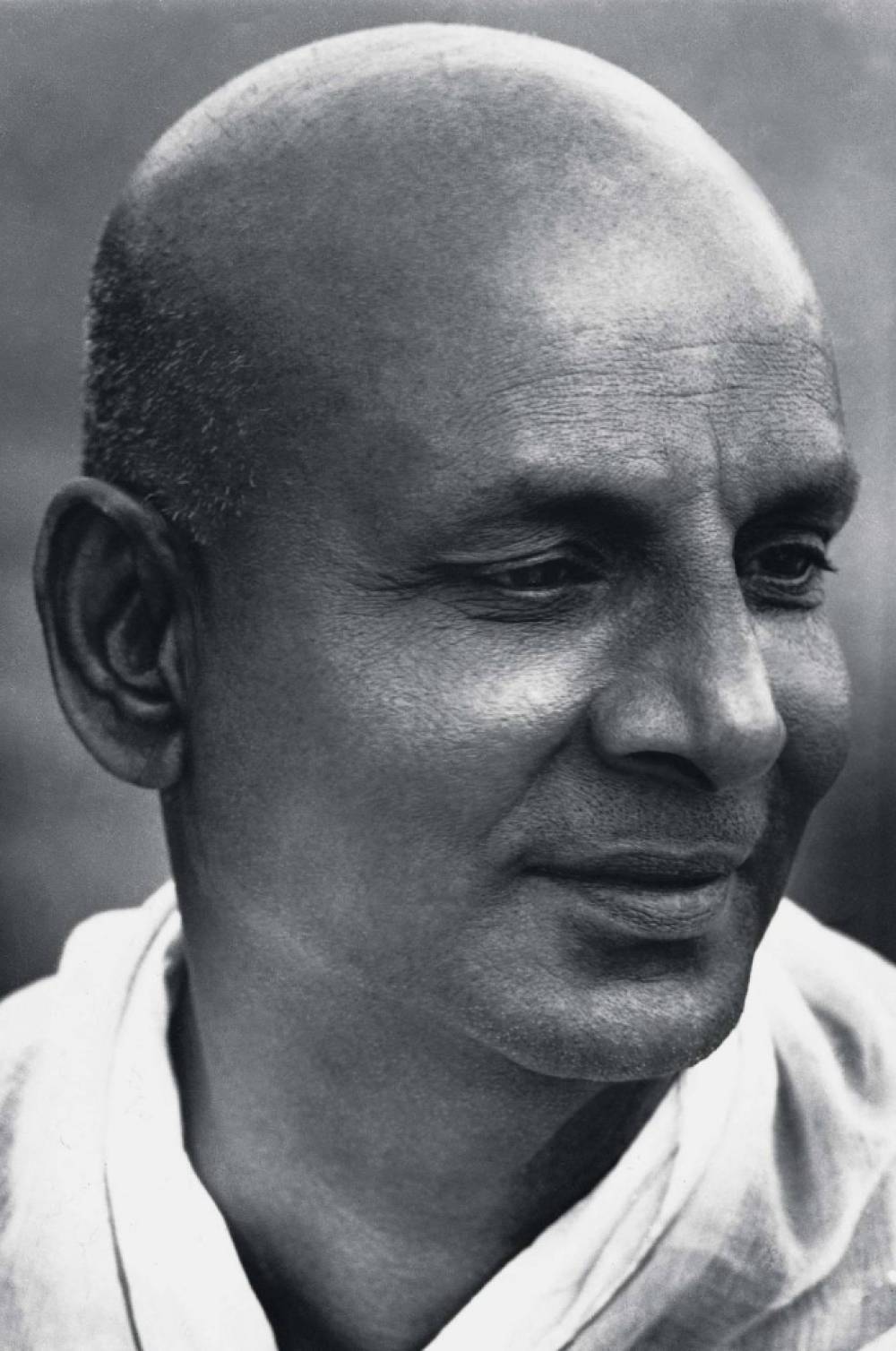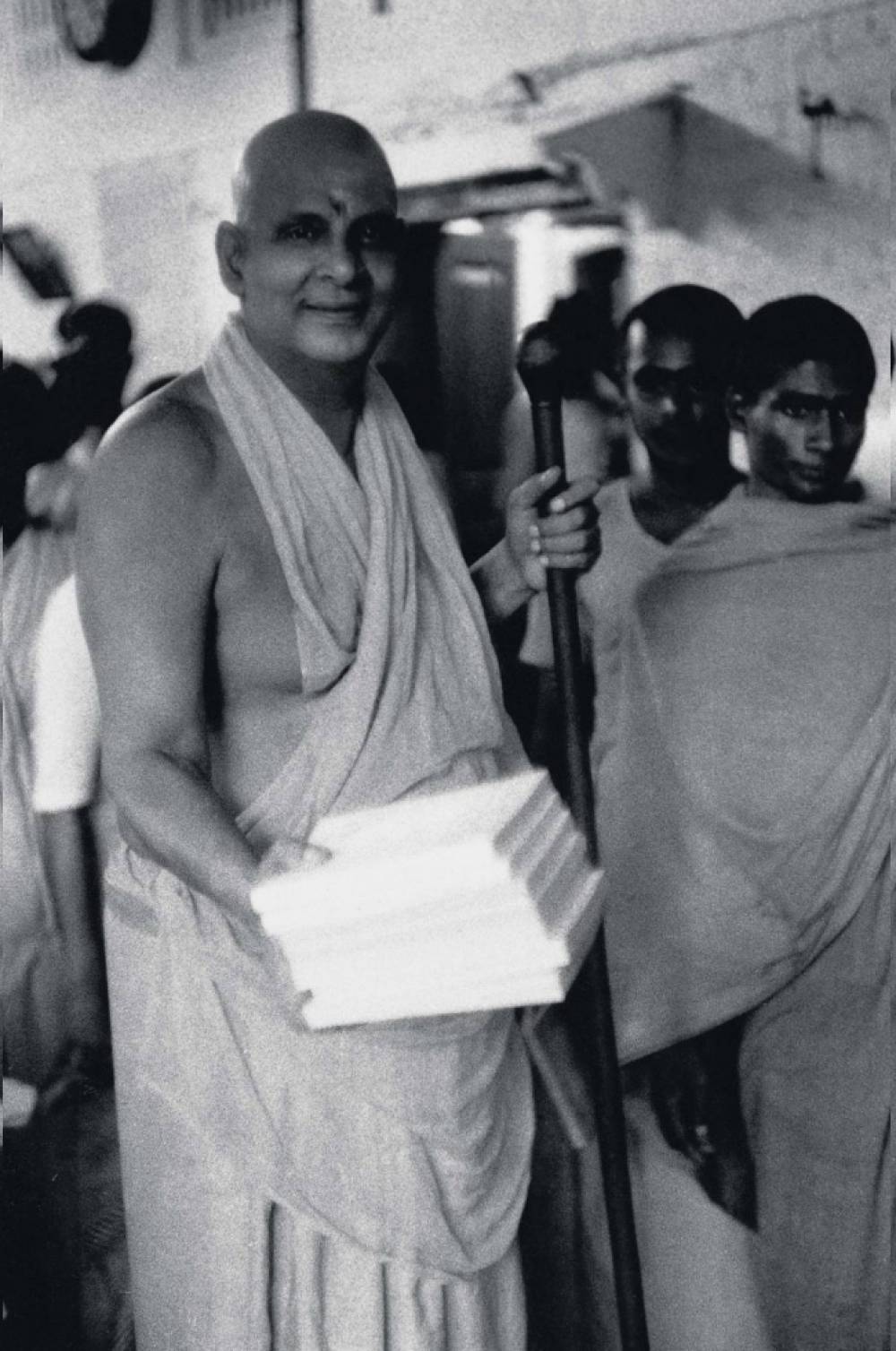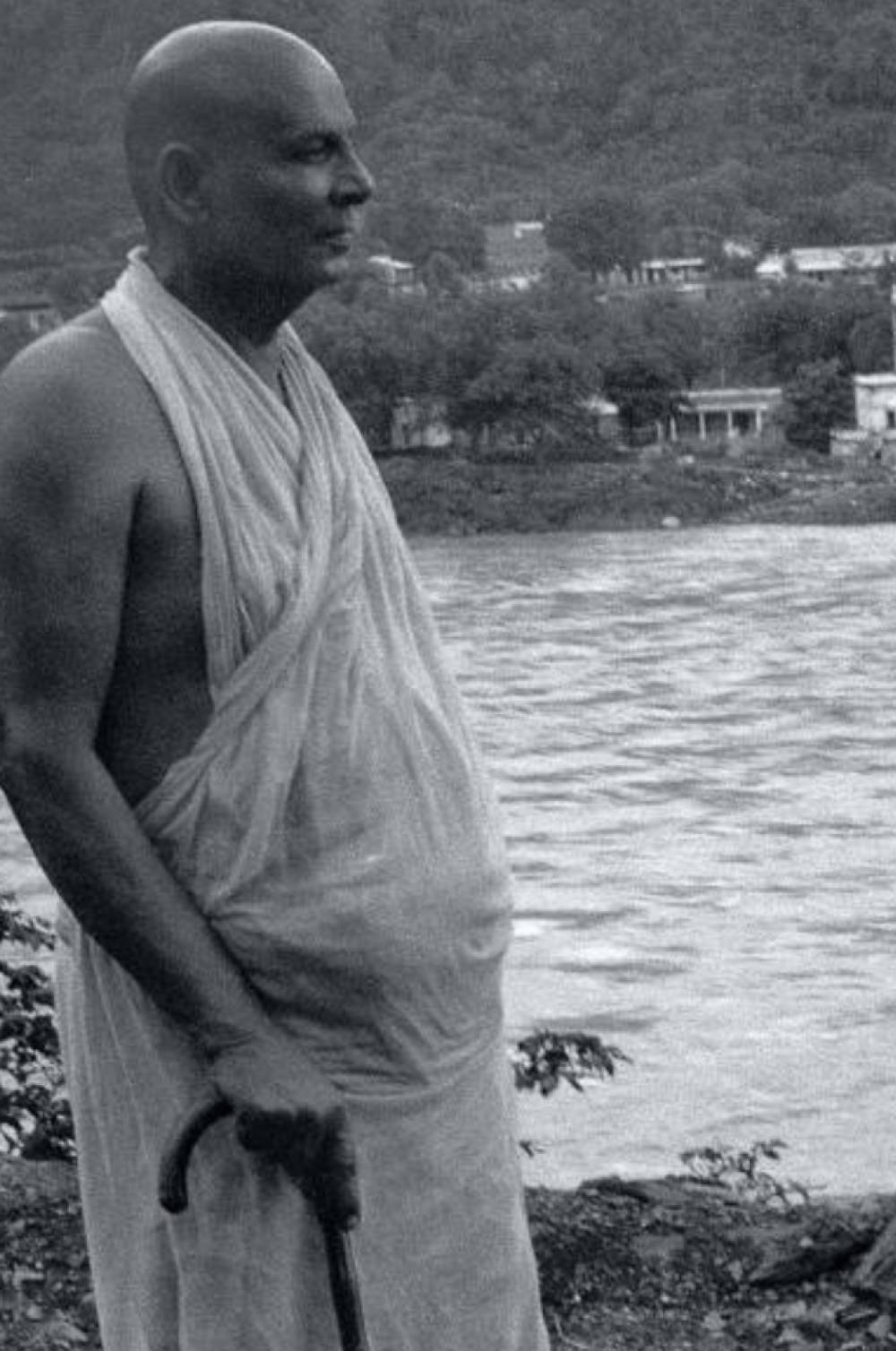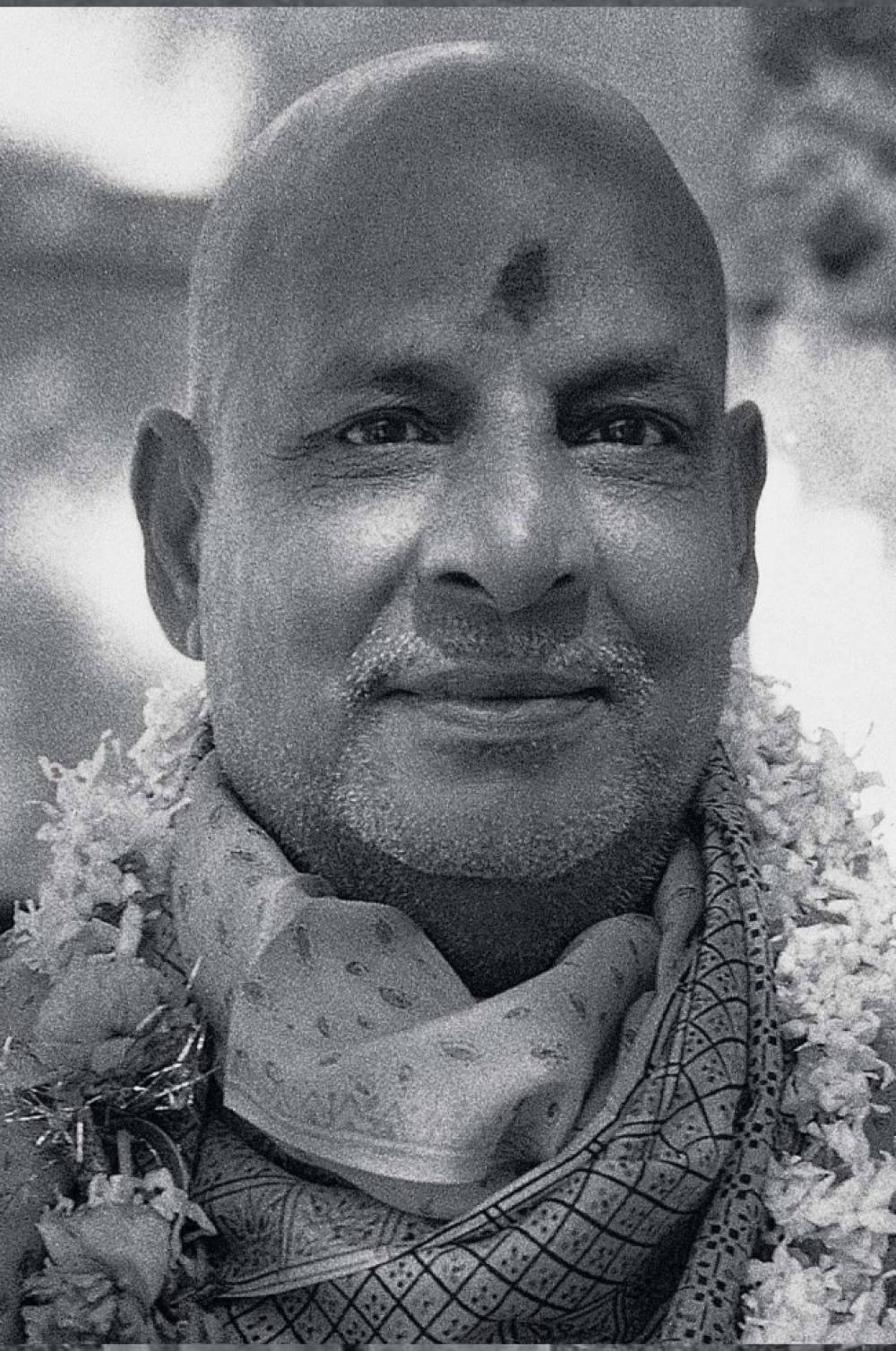Service is Essential
You must completely engross and saturate yourself in service. It is no use sitting in a closed room or on the bank of the Ganga and meditating for hours together. How long can you meditate? Ask yourself. Say, for half an hour or an hour at the most. Then your mind will begin to wander, innumerable thoughts will crop up, you will begin to imagine so many useless things and start building castles in the air. You will not be able to control your thoughts or concentrate on your object of meditation. What is the reason for this? Because of your bad Samskaras, because you have no serenity and the mind is always ruffled by worldly thoughts, and-because you have not purified your heart by selfless service. You can purge out your bad Samskaras only through intense selfless service. Then peace and serenity will come and you will have perfect, vigorous meditation.
I have heard of so many aspirants complaining that they are not able to do sufficient Japa, meditation, etc., because they are always engaged in service. Well, I would ask them to go to some solitary place or shut themselves in a room for a day or two and just see how long they can meditate. It is impossible for a neophyte to meditate twenty four hours a day. The mind wants something to be engaged with. Have you seen any person meditating on the Ganga bank? Watch him for some time. He will perhaps be able to meditate quietly for an hour at the most, then you will see him playing with the pebbles or engaged with similar silly things. That is why I say that service is very essential in the beginning. Because the mind wants variety. You should engage it with some noble, benevolent work for the good of others. Service alone will bestow upon you everything. Through service alone you can have Realisation. Side by side you must also carry on your Japa, meditation and other preliminary Sadhanas. A synthetic practice alone can give you perfection.
Truly speaking, this is the best ground for spiritual practices to all aspirants. Because, here you have a beautiful blend of all Sadhanas, very attractive, practicable and suitable even to the most modern mind. You may say that such selfless service is not needed for the advanced class. But how many are they? Indeed, very few. It is only very highly evolved souls who can absorb themselves in meditation day and night. But what about the general class? This synthetic Sadhana alone is best suited for them.
Most of the persons renounce their hearth and home in search of peace and some serene atmosphere, and perhaps, a very few renounce for the sake of their quick spiritual evolution. They come to places like Rishikesh and Uttarkashi. But what do they find? The same world wherever they go. Why? It is because they carry their same mind along with them. The mind is saturated with all sorts of impurities. It wants society and its favourite objects. It can never remain peacefully in solitude without any work. That is why Karma Yoga is most suitable for such types of aspirants.
One ought to adjust himself with all sorts of circumstances. Suppose, you are capable of doing vigorous meditation; suppose you are a peace-loving, solitude-seeking Sadhaka and you can avoid getting stagnated in repose; then you may, of course, go to Uttarkashi or such other solitary places. But after five years when you come down to the plains, you will not be able to tolerate the secular circumstances, your mind will be very easily disturbed, you will never be able to meditate amidst noise and bustle, and you will be very easily perturbed by secular influence; in short, you will be just like a fish out of water. You will always require a cave or a solitary place for your Sadhana. Is this the result of your five years' Sadhana? Of what use then is your rigorous meditation, when you have no mastery over your mind, when you get easily upset by a few unpleasant words, when you are unable to bear insult, injury, censure and persecution? Of what use is your remaining in solitude for so long a time, when you are so easily carried away by the petty temptations of creature comfort, when you are unable to withstand the secular atmosphere? You must rigorously train your mind to remain unshaken, unperturbed and peaceful amidst distraction and dissipation. You must be able to move amicably with others and be adaptable, tolerant, sociable and serviceable. You must be able to adjust yourself with all types of people and make yourself useful to others; you should adore, serve and worship the same Lord manifest in the poor, the sick and the suffering, just as you adore and worship Him in the temple of your heart. Therein indeed lies the success of your Sadhana.
Suppose, if you go on observing Mouna for five years, afterwards you will begin to stammer, you will not be able to talk properly to others. Is this all you are to gain during your Sadhana? Be wise. Discriminate. Analyse and scrutinise your thoughts. Boldly proclaim, "I would devote my entire life in the service of others, no matter, whether I get salvation or not, that is not my concern; my duty is to serve my Lord in all, to untiringly serve the poor and the sick, to saturate my entire being in the service of others." This indeed should be the bold proclamation of every Sadhaka. You must go on hammering this to each and everyone with whom you come in contact.
If you are a real, sincere Sadhaka, you must be able to enter into Samadhi by merely once repeating "Tat Tvam Asi"-Thou art That-like the great king Janaka. Svetaketu had realised only by repeating "Tat Tvam Asi" nine times. And why not you? Your heart must melt the very moment you utter "Tat Tvam Asi." Your feeling should be intense. Otherwise, if you go on stammering "Soham", "Sivoham" and "Aham Brahma Asmi" even five thousand times, what is the use if you do not actually feel their grave, infinite significance? You would be only wasting your time.
I have seen some persons rolling beads inside their Chaddar during the night class. This Brindavan method is of no use. Obviously, he will not be able to fully concentrate his mind on Japa when the class is going on. On the other hand, he would not also follow what is being read in the class. Thus he is not benefited in any way. So many useful things are being read in the class. If he follows them, he will have so many good ideas, it will be a good food for the mind and he will be highly benefited. But he thinks that he would be doing more good by mere rolling the beads without any concentration. Then what is the use of his coming to class? Be sincere. Spiritual life is not an easy joke. Be serious, practical and earnest. Wash away the impurities of your heart through intense selfless service, colour it with unswerving, ungrudging, unconditional self-surrender to the Lord and polish it with Vichara and Viveka. Then alone you will be able to behold the Almighty Lord with all His glory in your heart.
I would suggest you a nice method, so that you can practise a beautiful blend of synthetic Sadhana even while you are at work. Vigorously work for an hour or two. Now your mind is completely saturated in work. You are unconscious of the outside world. You are fully engrossed. Now stop all your work. Close your eyes and withdraw the mind slowly. Forget all about the work. Concentrate your thoughts gradually and convulge them upon your Ishta-Devata or upon some lofty, divine ideas. Be calm, peaceful and serene. Relax yourself completely. Your thoughts should gently, naturally and spontaneously dwell upon your object of meditation. After ten minutes or so come down to your normal state and start your work. You will get fresh energy, you will be revitalised and will be able to do your work wonderfully.
Another method: If you are unable to meditate due to disturbances, take your Mantra notebook and write your Ishta-Mantra for ten minutes. Concentrate your thoughts upon Likhita-Japa. Or even this if you are not inclined to do, you may read some book and dwell upon the ideas contained therein. Analyse and reflect upon the ideas. Or, repeat a few Slokas from the Gita and meditate upon their ideas, or start doing mental Japa. In this way you may utilise five to ten minutes. Then again do your work for another two hours and repeat this process simultaneously. The mind will have variety, you will be able to work more efficiently and side by side you will be also doing your Sadhana.
In the same way you can also practise meditation. You may be able to do intense meditation for half an hour and then the mind will begin to wander, you will be thinking on so many useless, and even sometimes on some evil topics. Have you carefully watched what a variety of thoughts crop up during meditation? Your attention is drifted from your Lakshya and you are not aware of it at that particular moment. Now you will begin to think on so many peculiar ideas, events and topics. Your thoughts are concentrated upon them. You must now withdraw the dissipated rays of the mind again and again and concentrate them upon your Lakshya. When you find it difficult to do this, you should stop your meditation and start doing Kirtan or hum some elevating Slokas for sometime. You may also read some books, or write your Ishta-Mantra or have a little stroll outside your room. The mind will be energised and you will be able to meditate again with intensity. You will have to repeat this method whenever you find that meditation is becoming strenuous, monotonous or tiresome.
I would suggest you another method. When you feel disgusting or monotonous while working at a stretch, take a holiday for a day or two, go to some nearby place and have complete relaxation. Take ample rest. Do not think of your work you have left behind. Take long walks in solitary places or loiter in the forest. You will be energised. Now you can join your work with a fresh mind. In this way, you will be able to turn out more solid work than working continuously at a stretch in spite of monotony and disgust. Always use your common sense. Discriminate and persevere in Sadhana.
You will find even educated persons often indulge in meaningless guffaw, giggle and such other frivolous acts. They think that they have very eloquently expressed their joy. But it is not so. It is very silly and uncourteous. By a mere sweet smile one's joy can be expressed very well. It will elevate others, soothe the distressed and give solace to the afflicted. This is courteous and mannerly. A Sadhaka must not indulge in violent laughter. He must be always gentle, polite, peaceful and serene. The real joy of intuitive experience can never be expressed by loud laughter or gusto. His serene countenance itself will radiate his inner joy and make others also experience his intuitive bliss. It is only worldly persons who indulge in such silly guffaw. As a Sadhaka you must be the embodiment of sweetness, politeness and mannerliness.

